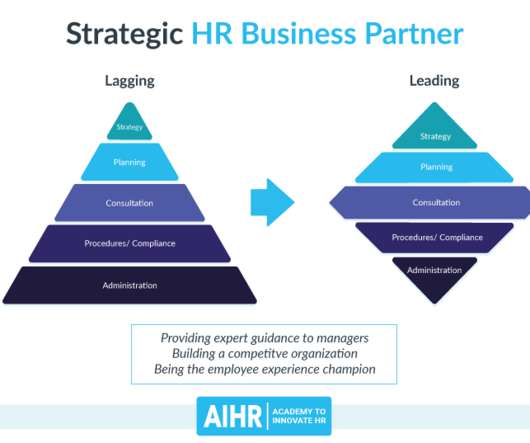What Is Human Resources?
Analytics in HR
JULY 31, 2023
Through workforce planning, talent management, succession planning, and applying other HR best practices , HR professionals ensure that the organization has the required talent to keep operating and meet its long-term goals. HR ensures compliance with employment laws and regulations to protect employees’ rights.
















Let's personalize your content